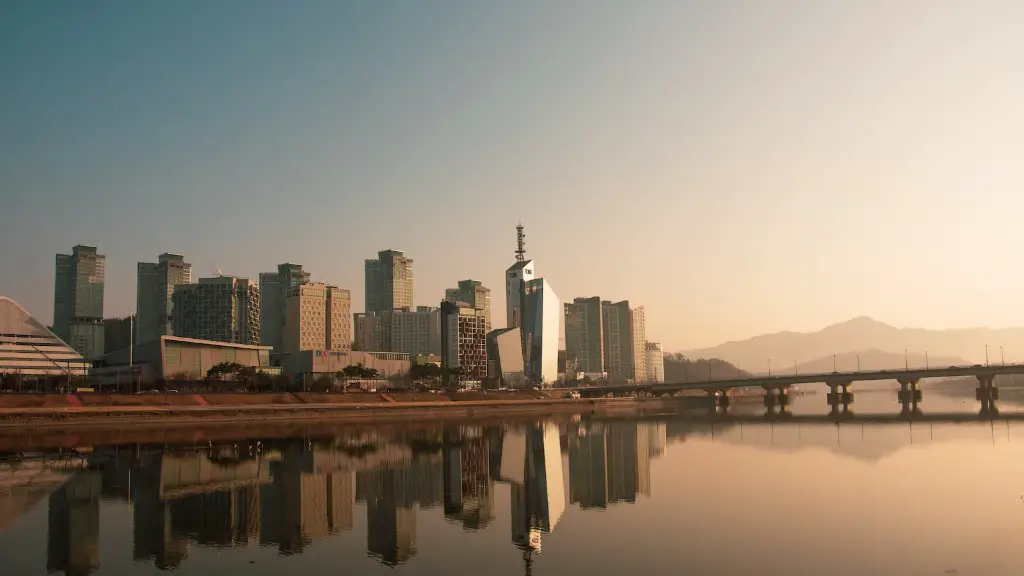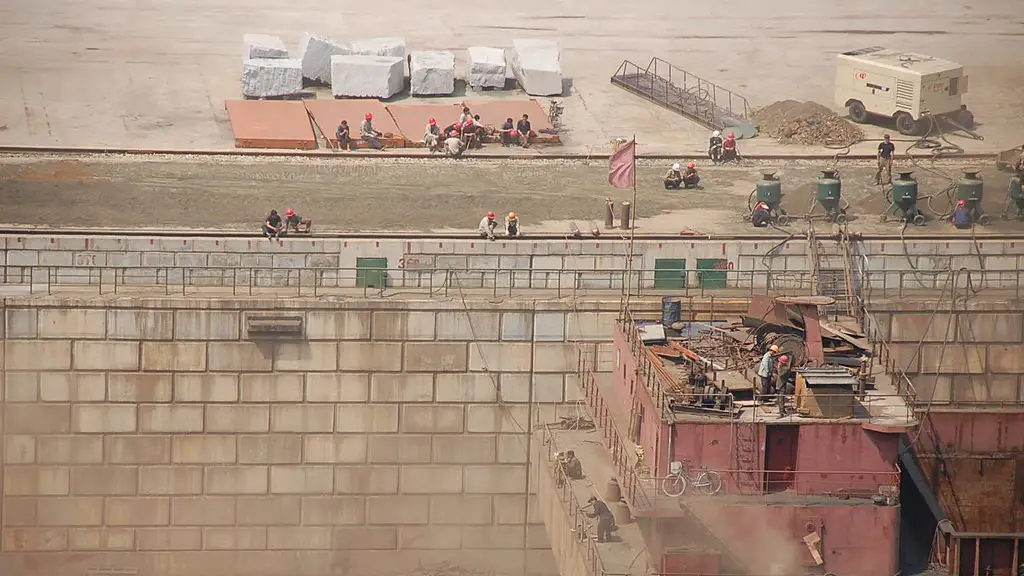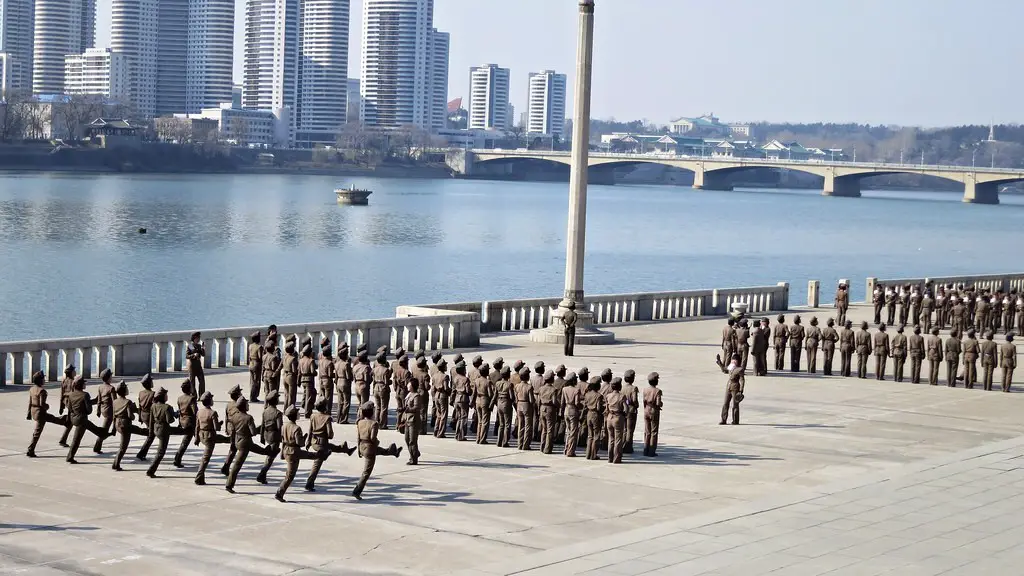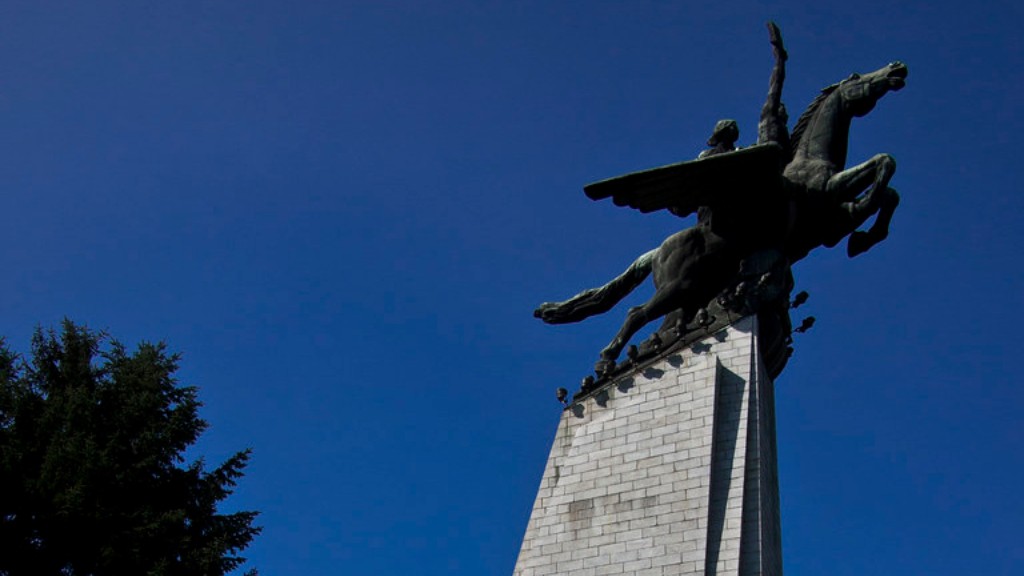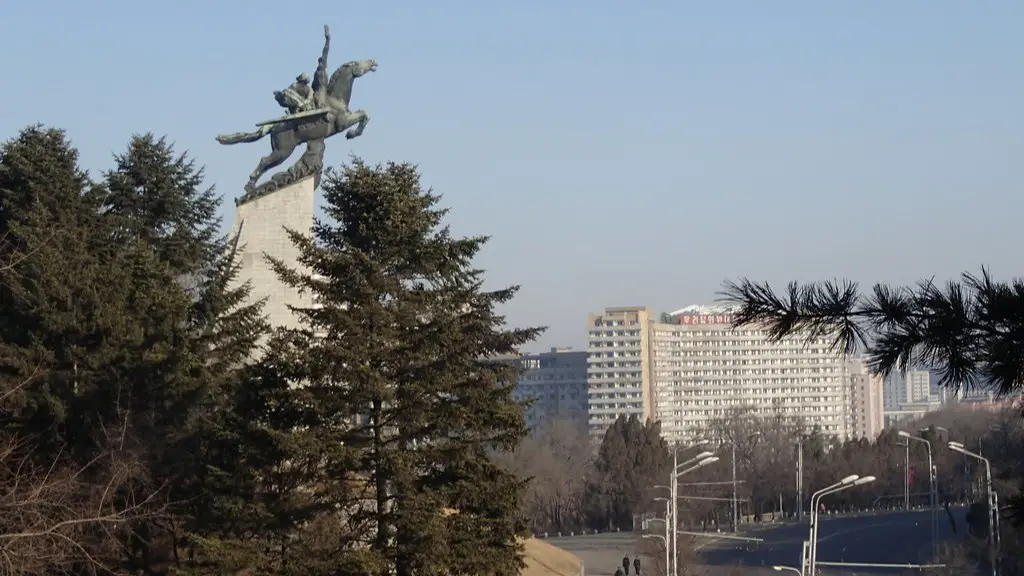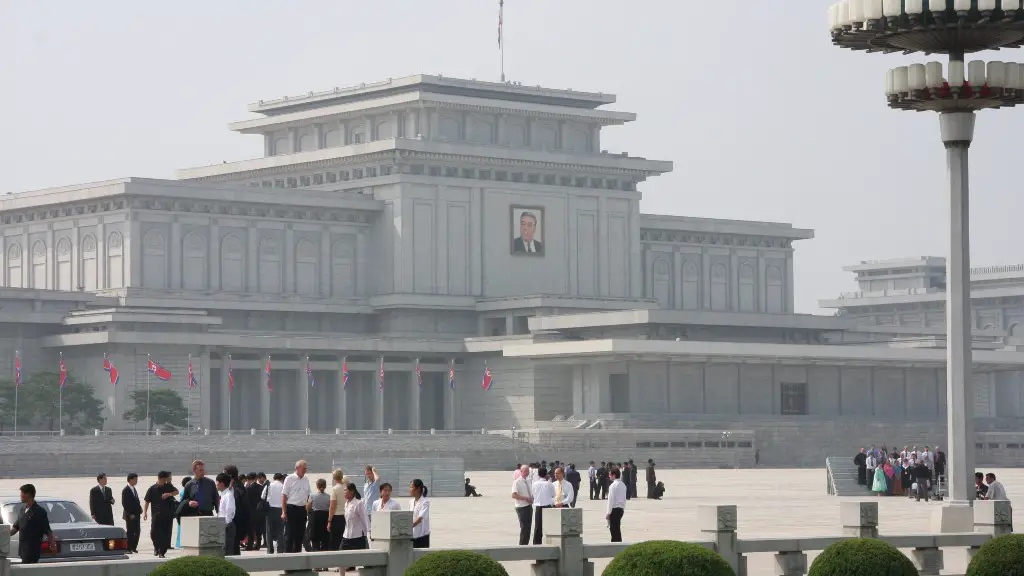What Was Life Like In North Korea?
The Democratic People’s Republic of Korea, better known as North Korea, is a land cloaked in mystery and repressive government. Very few outsiders have had direct experience of North Korean life, yet there are some common behaviors that have been observed in North Korean daily life.
It is generally agreed among North Korean exiles, experts and observers that the North Korean people are hardworking, determined and organized. The North Korean government has created a system of highly specialized tasks for each individual in the country. These tasks, or ‘jobs’, range from farming to auto mechanics.
In many ways, North Korean life is quite regimented. Education, food production and economic activities are referred to as ‘the three pillars of the North Korean nation-state’ and are heavily regulated by the government. The North Korean government measures success and failure on the basis of the performance of these three pillars.
North Koreans are also exposed to highly regulated forms of communication. State-run media is strictly controlled and, until the late 1990s, it was illegal to own and use radios and televisions that can receive foreign broadcasts. North Koreans generally have access to only state-run television channels, newspapers and radio stations.
Food production and allocation are also heavily regulated by the North Korean government. From birth, North Koreans are assigned to a particular collective on a general level and are expected to contribute to food production. Although the collective system has become less important in recent years, it still has an influence on the daily life of North Koreans.
Another aspect of North Korean daily life is the existence of a highly militarized society. North Korea is a mandatory conscription country and, since childhood, North Koreans are trained to rely on their military as a source of protection and safety. North Koreans are also reminded through propaganda of their ‘sacred duty’ to protect their homeland against invaders.
North Koreans are also subject to strict restrictions on their freedom of movement. Access to information from outside North Korea is strictly controlled and North Koreans who attempt to leave the country without government approval are severely punished. Such restrictions have imposed significant hardships on North Korean citizens for many years.
Economic Situation
North Korea has the lowest Gross Domestic Product (GDP) in the world, with an estimated amount in 2017 of just US$17.12 billion. The nation’s economy is highly centralized, with the government controlling all major industries. This has resulted in a lack of diversification in economic sectors, low rates of technological progress and a lack of access to foreign capital.
The North Korean economy is largely dependent on exports, most notably minerals, such as coal and iron ore. The country also relies on foreign aid, particularly from China, to supplement its exports. As of 2016, an estimated 10-20% of North Korea’s population lived below the poverty line.
North Korea has experienced a severe shortage of food and industrial goods since the 1990s. This has been exacerbated by a series of natural disasters and embargoes imposed by the international community. The shortage of food has led to an increase in malnutrition, with estimates suggesting that up to 20-30% of North Korean children are malnourished.
The shortage of food has also had a significant impact on the availability of certain medicines, fueling outbreaks of diseases such as tuberculosis, cholera and measles. These ailments have spread quickly in recent years, due largely to poor nutrition and improper medical care.
In recent years, North Korea has increasingly opened its markets to foreign investors, mainly in the form of Chinese and South Korean investor companies. As a result, there has been an increase in investment in the North Korean economy, particularly in the mineral and tourism sectors.
Quality of Life
The standard of living in North Korea is very low compared to most other countries. Access to electricity and running water is limited, and healthcare and education are inadequate. The majority of North Koreans have limited access to food and basic services, such as education and healthcare.
The majority of North Koreans live in poverty, and there is an increasing disparity between the wealthy and the poor. The wealth gap has grown wider in recent years, and the majority of the population has seen their quality of life deteriorate.
The economy of North Korea is largely dependent on the government and the military, and there is very little room for independent economic activities. This has resulted in the majority of North Koreans relying on the government for employment, which in turn leads to a lack of job security.
The government has attempted to provide citizens with basic necessities, such as food, electricity and water, but these services are often unreliable and scarce. In addition, North Korea’s gambling and prostitution industries are largely unregulated and many North Korean women are coerced into engaging in these activities for financial gain.
The general lack of advanced infrastructure has meant that North Koreans are often cut off from the rest of the world. The government strictly regulates the possession of mobile phones, computers and the access to the internet, which further limits the ability of North Koreans to communicate and access information.
Freedom of Speech and Information
The North Korean government maintains its control over the population through widespread censorship and punishment for any criticism of the government or its policies. There is no freedom of speech or press in North Korea, and information from outside the country is heavily restricted and controlled.
The North Korean government also imposes severe restrictions on the use of the internet, and access to the internet is largely limited to officials and those with special permission. As a result, most North Koreans have limited access to information about the outside world, as well as news about the politics and policies of their own country.
North Korean citizens are not allowed to express their opinions freely and any expression of dissent is swiftly punished. The government has often used forced labor, public executions and concentration camps to scare citizens into silence and obedience.
The government also controls the media in North Korea and strictly regulates access to images and information about the outside world. In any form of media, the North Korean government attempts to paint itself in a favorable light and suppress any criticism of the government or its policies.
Social Interaction
Social interaction in North Korea is heavily regulated by the government, with citizens being discouraged from interacting with foreigners and tourists. In recent years, there has been an increase in social and cultural exchanges between North and South Korea, however, these exchanges remain limited in scope and the majority of North Koreans are still cut off from the outside world.
The North Korean government has heavily regulated the arts and entertainment industry, banning foreign films and music and promoting domestically produced propaganda as “cultural products”. The few foreign films and music that are allowed are heavily censored by the government to ensure that they fall in line with the North Korean ideology.
North Koreans are also subject to compulsory military service, which is believed to be one of the primary reasons for the lack of social interaction amongst North Koreans. In recent years, North Korean leaders have granted more freedom to citizens in the form of festivals, concerts and sports events, but these activities are still largely organized and monitored by the government.
Religion and Ideology
Religion is heavily regulated in North Korea, and religious activities are restricted to officially sanctioned churches. The North Korean government promotes its own official ideology, which is based on the teachings of the country’s founder Kim Il-sung and his son Kim Jong-il.
This ideology emphasizes the importance of the supreme leader and stresses the need for absolute loyalty to the regime. This ideology is reinforced through the heavy censorship of media, and the government attempts to control the flow of information and the spread of ‘dangerous’ foreign ideologies.
The North Korean government also promotes its own version of socialism, which is based on heavy government intervention in the economy. This has resulted in a heavily centralized economy with little or no competition, and it has hindered the emergence of a market economy in North Korea.
The North Korean government also promotes a ‘Juche’ ideology, which has been expressed in the teachings of its founder Kim Il-sung. This ideology emphasizes the importance of self-sufficiency, and it has been used by the government to shape North Korean society and to bolster its own legitimacy.
